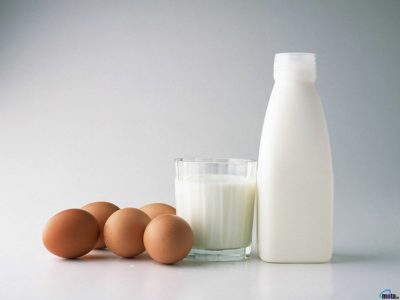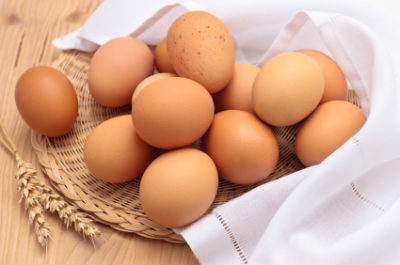
The process for the storage of milk and eggs can vary considerably from one to the other.
This article will help you to know more about the storage of milk and eggs. Whether you are blessed with an overabundance of food or you are someone who wants to be prepared in a survival situation, you may have wondered if you can store your fresh milk and eggs on a long-term basis.
The answer is yes! Moreover, the process for the storage of milk and eggs, as you might suspect, involves freezing, canning, and/or dehydrating.
Storage Of Milk And Eggs
The process for the storage of milk and eggs is considerably different.
First of all, let’s look at how to store milk long-term.
Freezing Milk
You can freeze any type of milk for as long as three to six months. The freezing process causes some separation, especially in whole-fat milk. But if you shake it after it defrosts, you will not notice too much of a taste difference. Here are some tips for freezing milk:
- Freeze milk when it is at its freshest for best quality.
- Pour milk into small, airtight containers for freezing. Not only will you be able to defrost the quantity you need without spoiling the rest, but the smaller containers will both freeze and defrost more quickly. This process preserves the quality of the milk. Glass canning jars work well.
- Leave room in your container for expansion. Milk expands by about 10 percent when it freezes.
- Freeze milk that is already cold. If you are using farm-fresh milk, cool it before freezing for best quality.
- Store your milk deep in the freezer, away from the door.
- Shake the milk vigorously when thawing to combine separated components.
Canning Milk
Another way to preserve milk is by canning it in a pressure canner. Your home-canned milk, which will last for about a year, will be similar to what is called evaporated milk at the supermarket. You will need to add water to it later to get it to the right consistency.
Discover The World’s Healthiest Storable Survival Food!
To start, check your canning jars and lids for nicks and cracks before sterilizing them. Fill the jars, leaving a half-inch of space at the top of each jar. After wiping the rims with a clean and damp cloth, cap the jars with your sterilized lids and rings.
Now you are ready to follow the directions for your pressure canner. Keep a close eye on the pressure canner, as they can be a bit unpredictable. Once the jars have been boiled for the correct period, remove the canner from the heat and let it sit for about an hour untouched. Then, set the jars on a towel or on several layers of newspaper in a location that is free from drafts.
Cover the jars with towels and leave them to sit untouched overnight. Check for any leakage the next morning and then store the milk in a cool, dark location.
Now let’s look at how to store eggs.
Freezing Eggs
This process is simple and easy. To prepare eggs for freezing, crack them into a large bowl and whisk them as if you were preparing scrambled eggs. Then pour the liquefied eggs into the individual portions of an ice cube tray. One cube equals about one egg.
After the eggs are frozen, you can remove the cubes and place them into a zippered bag or another airtight container. If you prefer, you can separate egg yolks and whites and freeze them separately. They will keep for about a year in the freezer.
Canning Eggs
Many people get squeamish when it comes to canning eggs, and you certainly won’t find any USDA approved guidelines for canning eggs because of the fear of botulism. However, homesteaders have been eating canned, pickled eggs for generations. Jackie Clay, the author of Growing and Canning Your Own Food, has the following tried-and-true recipe for canning pickled eggs.
New Survival Seed Bank™ Lets You Plant A Full Acre Crisis Garden!
Here it is:
Ingredients
18 whole, hard-boiled eggs (peeled)
1½ qt. white vinegar
2 tsp. salt
1 Tb. whole allspice
1 Tb. mixed pickling spices
Directions
Mix vinegar and spices in a large pan and bring the mixture to a boil. Pack whole, peeled, hard-boiled eggs into sterilized mason jars, leaving a half-inch of space at the top. Carefully ladle the hot pickling solution over the eggs, leaving a half-inch of space at the top. Be sure to cover all the eggs and remove any air bubbles. Process the jars for 25 minutes in a boiling water bath canner (or according to the directions on your pressure canner).
If you carefully follow this method, you can store your eggs in a cool, dark basement for up to six months, sometimes longer. Please note: there is a risk of botulism and other bacterial diseases with egg canning. Proceed with caution. For more information, visit UGA.edu.
Dehydrating Eggs
As previously discussed on Off The Grid News, you also can dehydrate eggs. Here are the steps:
-
- Pour one dozen chicken eggs in a blender or food processor. Duck eggs are larger, so perhaps use just 10 of these in each batch.
- Pulsate the eggs until they are thoroughly blended together. Choose whichever setting works best for you, or go the old-fashioned route and stir in a bowl until thoroughly mixed.
- Place a fruit tray insert (or wrap the tray with cling wrap) into dehydrator trays. Pour the mixture until it fills about half the depth of the tray. Thicker mixtures do not dry evenly and take longer to complete.
- Pour half of the egg mixture onto a tray. Each tray will hold approximately six eggs. Use up to four trays and two dozen eggs at a time.
- Set the dehydrator to the fruit and vegetable setting, or 135 degrees.
- Dehydrate the eggs for seven to nine hours, depending upon the size and power of your dehydrator.
- The eggs will look and feel a bit like peanut brittle when done. Pat away any greasy texture on top of the eggs.
- You can store the eggs in their flat form in either a Mason jar or a vacuum sealed bag. Alternatively, you may powder the eggs in a blender to conserve storage space. Putting the flat, dehydrated eggs into a small bowl and “crunching” them with a wooden spoon will also result in a powdered texture.
- To dehydrate the eggs, mix one tablespoon of powder with two tablespoons of lukewarm to warm water. Let the mixture stand five minutes and use it to bake, scramble, or cook with as you would fresh eggs.
Conclusion
Hopefully, with this information, you will realize that you are not limited to only meat and grains for your long-term food storage. With proper preparation, the storage of milk and eggs can be accomplished. You can preserve some of the fresh foods you enjoy on a regular basis. The storage of milk and eggs serves your basic needs in any survival situation.
You may also enjoy reading an additional Off The Grid News article: Stockpiling 101: How Long Can You Store Powdered Milk?
In what ways do you preserve milk and eggs for the long-term? Share your tips in the comments below.
Discover The Trick To Saving Thousands At The Grocery Store. Read More Here.
 Off The Grid News Better Ideas For Off The Grid Living
Off The Grid News Better Ideas For Off The Grid Living




